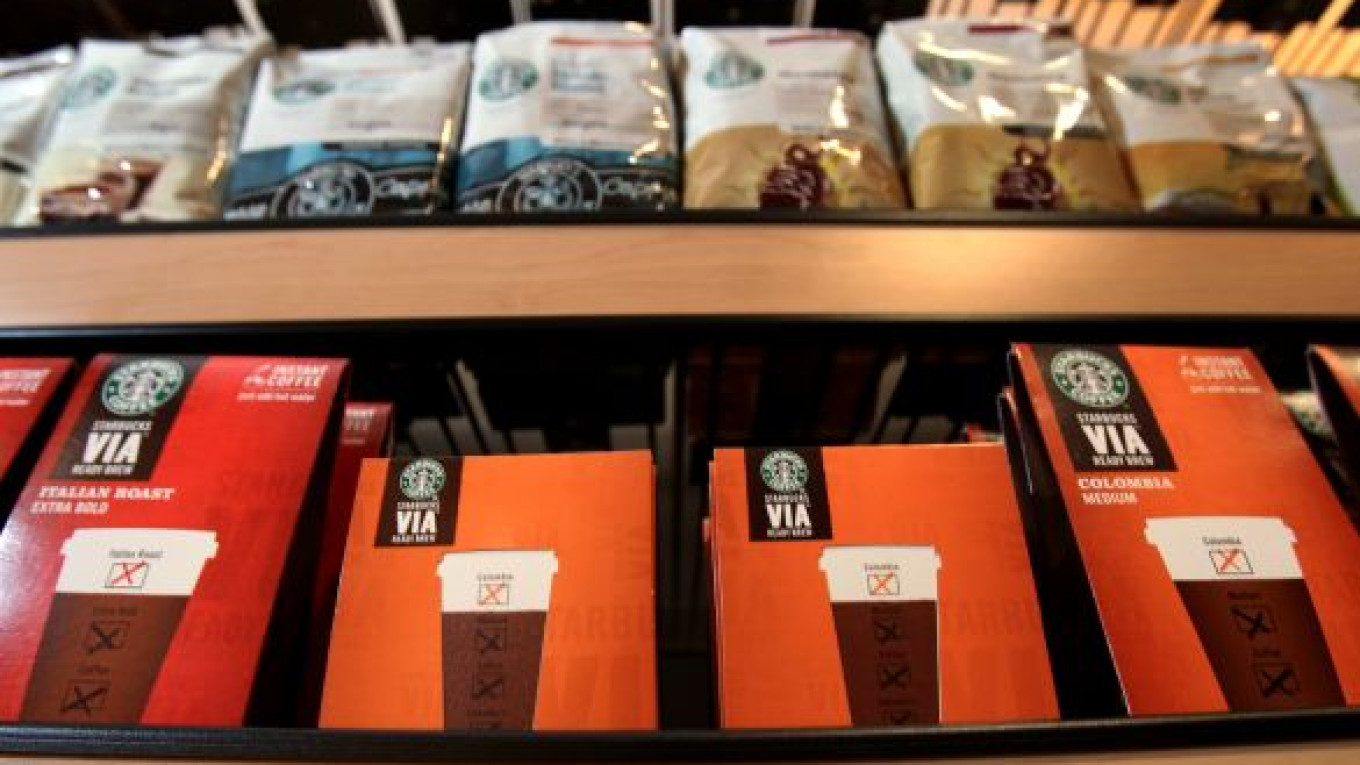SEATTLE — Starbucks plans to introduce its Via instant coffee brand to Russia, the world’s second-largest market for the product, following a Chinese debut within the next year, CEO Howard Schultz said in an interview.
The world’s top coffee chain has been struggling to revitalize growth by slashing costs and introducing items like Via. The company recently finished a two-year business revamp that included slashing costs and closing more than 900 stores around the world.
Schultz said he saw no sales impact from recent economic jitters in the United States and Europe. He is now looking toward emerging markets like China and Russia.
Starbucks’ U.S. business, which accounts for more than half of the company’s profits, has returned to growth, and Schultz is now focused on introducing new products to drive sales growth.
Key among them is Via instant coffee, which is sold in the United States, Canada, Britain and Japan. Schultz said Starbucks planned to build Via into a billion-dollar brand, with expansions into China and later on, Russia.
Starbucks now has just over 700 units in China, Taiwan and Hong Kong, but the company sees the world’s most populous nation and third-largest economy as its next major market.
The chain has just 31 cafes in Russia, but they post blockbuster sales and the brand has cachet there, Schultz said.
The top three instant coffee markets in 2009 were Japan, Russia and Britain with 2009 sales of $2.3 billion, $2.1 billion and $1.2 billion, respectively, according to Euromonitor.
Via, which debuted in September, is on track for $100 million in sales in its first year. Starbucks expects Via to have a “slightly positive contribution” to fiscal 2010 earnings, even with marketing and advertising. “We’ve got a winner and we want to feed it,” Schultz said.
A Message from The Moscow Times:
Dear readers,
We are facing unprecedented challenges. Russia's Prosecutor General's Office has designated The Moscow Times as an "undesirable" organization, criminalizing our work and putting our staff at risk of prosecution. This follows our earlier unjust labeling as a "foreign agent."
These actions are direct attempts to silence independent journalism in Russia. The authorities claim our work "discredits the decisions of the Russian leadership." We see things differently: we strive to provide accurate, unbiased reporting on Russia.
We, the journalists of The Moscow Times, refuse to be silenced. But to continue our work, we need your help.
Your support, no matter how small, makes a world of difference. If you can, please support us monthly starting from just $2. It's quick to set up, and every contribution makes a significant impact.
By supporting The Moscow Times, you're defending open, independent journalism in the face of repression. Thank you for standing with us.
Remind me later.


